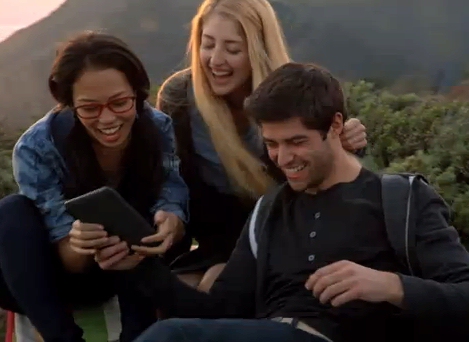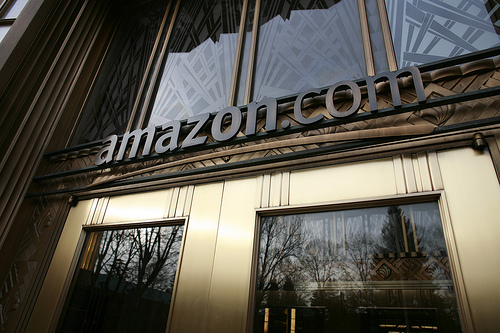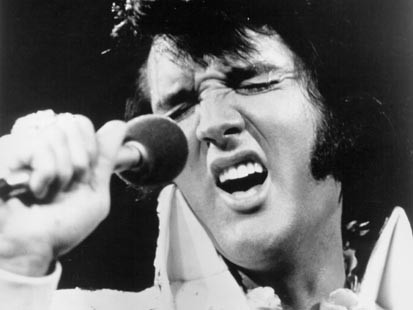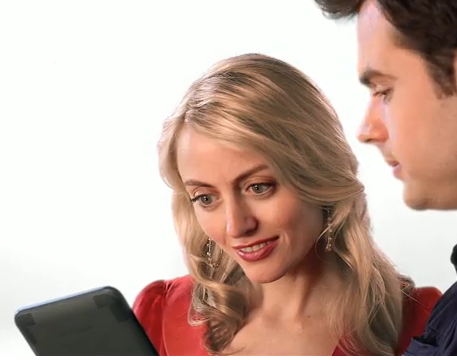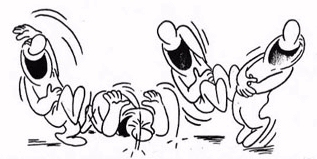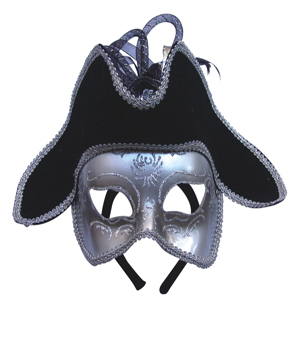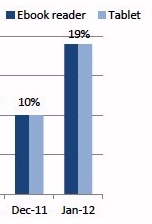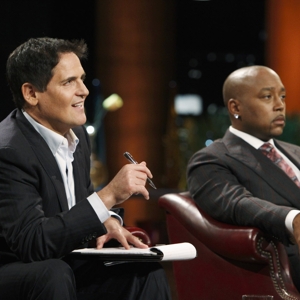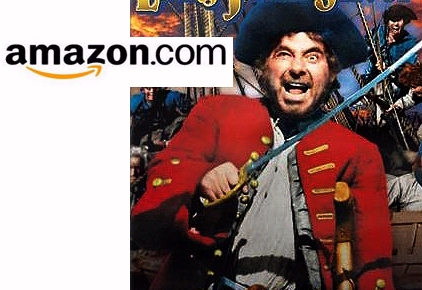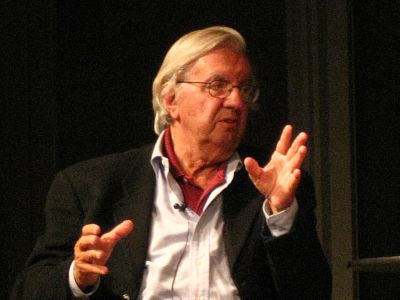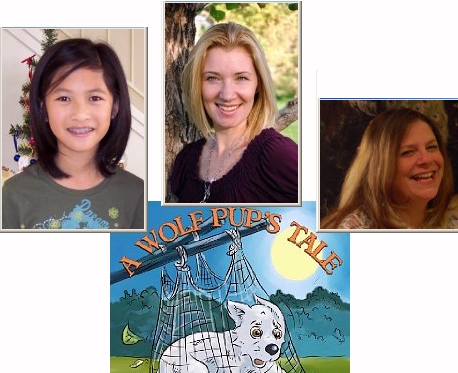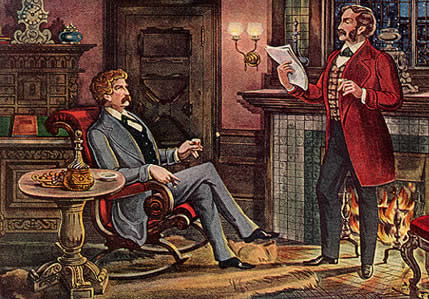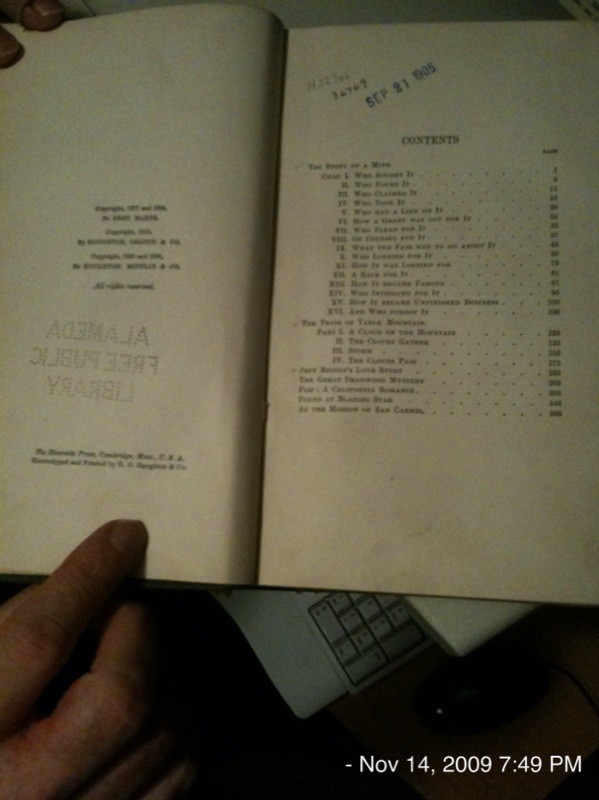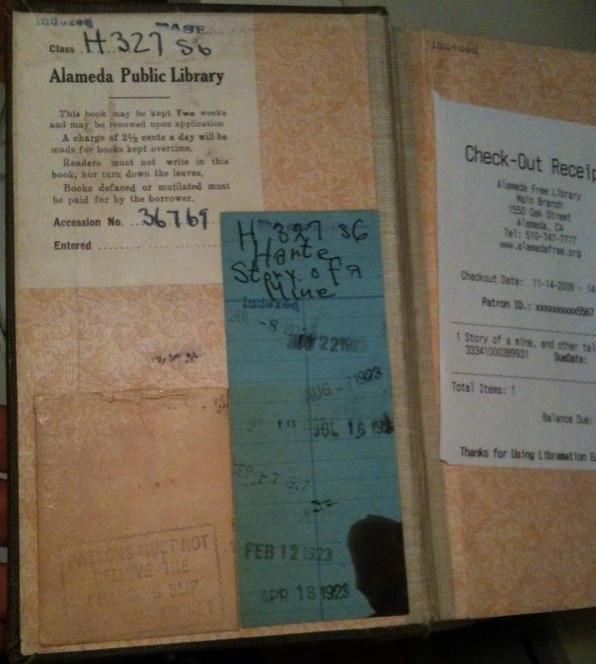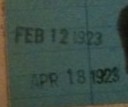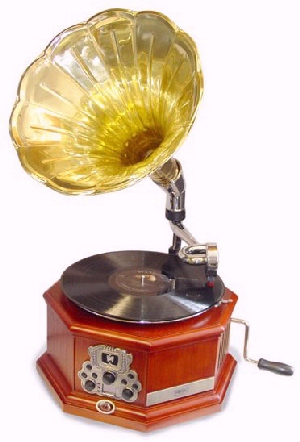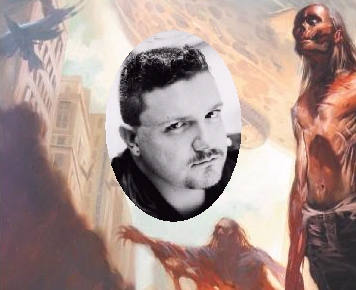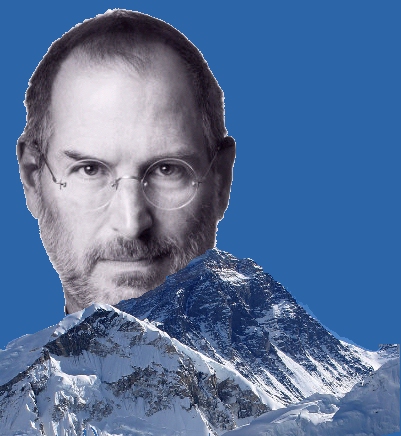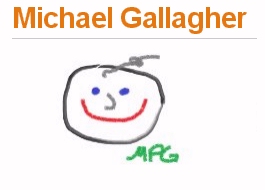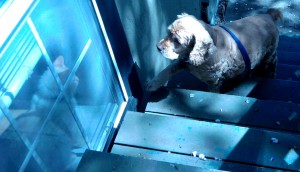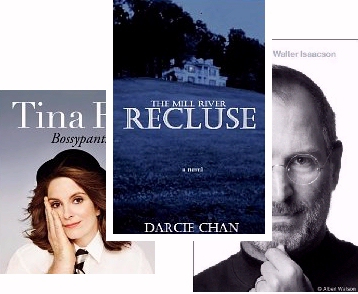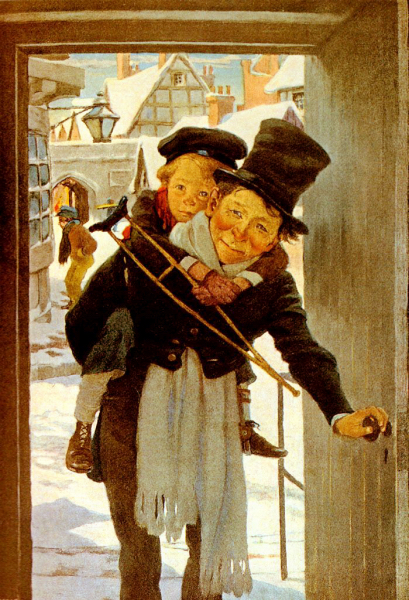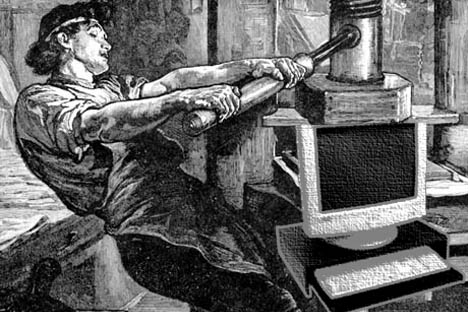
Once a year, I assemble my “master list” of shortcuts to the 30 most useful pages for Kindle owners – like all of the free ebooks and blogs that Amazon’s making available. But instead of trying to memorize a bunch of complicated URLs, I’ve created these shorter, easier-to-remember addresses that still lead to the same pages.
And all 30 of them start with TinyURL.com …
FREE EBOOKS
https://www.tinyurl.com/100freekindlebooks
Amazon’s 100 best-selling free ebooks are always available on this list (which is updated hourly!) And of course, the other side of the page also shows the 100 best-selling ebooks which are not free…
BARGAIN EBOOKS
tinyurl.com/399books
Every month, Amazon picks 100 ebooks to offer at a discount of $3.99 or less. There’s always a new selection on the first day of the month, so if you visited the page this Saturday (December 31st), you’d see December’s 100 discounted books — and then on Sunday (January 1st), you’d see an entirely new selection!
If you’re in England, Amazon’s created a different page for their bargain ebooks — go to tinyurl.com/399booksEngland
And if you’re in France, there’s also a different URL for your (English-language) bargain ebooks — it’s at tinyurl.com/399booksFrance
tinyurl.com/DailyKindleDeal
In addition, Amazon’s also created a special “Daily Deal” page, where they pick a new ebook each day to sell at a big discount for 24 hours. Past deals have included a James Bond novel by Ian Fleming and Kurt Vonnegut’s Mother Night — and I’m always surprised by the variety. For Christmas, Amazon discounted five holiday-themed romance novels to just 99 cents each, and they also slashed the price on “Call Me Mrs. Miracle” (from $12.99 to just 99 cents). Once they even discounted So Now You’re a Zombie: A Handbook for the Newly Undead!
You can also see past “Daily Deals” on their Twitter feed at twitter.com/kindledailydeal — or on Facebook at facebook.com/kindledeals. And there’s also a new web page where they’re archiving the deals at http://thekindledailydeal.com/
MORE EBOOK LINKS
tinyurl.com/2011Amazon
What were Amazon’s best-selling books for 2011? This URL takes you to a special Amazon web page where they’re all listed — 25 to a page — along with a link to a separate list for the best-selling ebooks of the year. The #1 best-selling print book was the new biography about Steve Jobs (followed by “Diary of a Wimpy Kid: Cabin Fever.” ) But the #1 and #2 best-selling ebooks were The Mill River Recluse and The Abbey — neither of which was even available in print!
AMAZON’S CUSTOMER SUPPORT
tinyurl.com/kindle-cs
Amazon’s Customer Service has drawn rave reviews. (If your Kindle is broken, Amazon will usually mail you a replacement overnight!) This page collects all of Amazon’s support URLs. And at its far left, there’s a special link labelled “Contact Kindle Support,” which leads to the support phone numbers for 10 different countries, as well as an online contact form.
tinyurl.com/ReturnAnEbook
Amazon lets you return any ebook within 7 days, no questions asked. Just remember this address — tinyURL.com/ReturnAnEbook — and you’ll always be able to get a refund if you’re not satisfied with your purchase.
MY EBOOKS
It’s my list, so of course it includes shortcuts for two very special ebook projects that I worked on this year…
TinyURL.com/TurkeyBook
“For Thanksgiving, try this game. Find the guilty turkey’s name!”
I wrote a special “mystery poem” that was finally published in November as a funny, illustrated ebook. There’s cartoon-y pictures which show four turkeys in a farmer’s pen on Thanksgiving Day. The farmer’s approaching with an axe — but one of the turkeys has a plan to escape! (“Can the farmer figure out which one? And can you?”) The short “Turkey Mystery Rhyme” is only 99 cents — a real bargain for a fun, holiday smile.
tinyurl.com/OurFunnyDog
Lucca is a cuddly Cocker Spaniel dog who was rescued from an animal shelter, and he now adores his new family — my girlfriend and me! Since I released this ebook just before Christmas, my girlfriend’s been telling her friends how she received “the best present ever” — this short collection of funny photos of her dog, along with sweetly humorous captions that tell the story of his life. (Like the day he met that white cat that moved in downstairs…) If you want to preview a “sample chapter first, go to tinyurl.com/GoodReadsDog — but the whole “short picture scrapbook” is only 99 cents, and it offers a nice peek at a very wonderful dog…
FREE KINDLE BLOGS AND MAGAZINES
tinyurl.com/freeAmazonblogs
Amazon actually publishes
six free blogs for the Kindle — and you can find them all at this URL. Besides their Omnivoracious book blog, there’s also a blog about food (and fine dining) called “Al Dente,” and a blog about movies and TV shows called “Armchair Commentary”. If you’re into automobiles, Amazon offers the “Car Lust” blog, and there’s even a blog called “Toy Whimsy” with reviews and information about — what else? —
toys!
They’re all available at the URL — but you can also get all of Amazon’s free blogs delivered to your Kindle in just one big super-subscription. Just look for the Amazon Daily blog — which is a great way to try them all out and see which ones you like best!
tinyurl.com/FreeSciFiMag
Fantasy & Science Fiction magazine has been publishing short SciFi stories and commentary for over 60 years — including the works of many famous authors. In 1978 they published Stephen King’s “Dark Tower” short stories, and in 1959 they ran Robert Heinlein’s “Starship Troopers” as a serial. (They also published the novella “Flowers for Algernon†and short stories by Harlan Ellison, and even published a short story by Kurt Vonnegut in 1961, which later appeared in his collection “Welcome to the Monkey House.”) Amazon’s now offering free Kindle subscriptions to a special “digest edition”. (The print edition, published six times a year, is a massive 256 pages.) The digest includes all the editorial content — editor’s recommendations, the “odd books” section, film and book reviews, plus cartoons and “Coming Attractions” (highlights of each issue) — along with one short story. (And if you want the full 256-page version sent to your Kindle, you can subscribe for just 99 cents more.)
A VERY SPECIAL KINDLE BLOG
tinyurl.com/MeAndMyKindle
It’s my blog! (That’s the URL for its page on the Kindle Store.) If you want to tell your friends how to find me, this URL makes it easy to remember. Just practice saying “TinyURL com/MeAndMyKindle” and soon we’ll all be sharing the latest Kindle news together.
FREE AND DISCOUNTED MUSIC
tinyurl.com/KindleChristmasSong
It’s that cute song from Amazon’s 2010 Kindle Christmas ad. (“Snowflake in my pocket, let’s take a sleigh ride on the ice…”) At this URL, you can download a free mp3 of the song “Winter Night” by Little &Ashley.
tinyurl.com/25xmasMP3s
Amazon also released 25 free Christmas songs as part of a special promotion in December. Their “25 Days of Free” page features 25 different mp3 files that you can download for free — each one with a different Christmas song — and right now they’re still available online. There’s songs by Bing Crosby, Mannheim Steamroller, the Irish Tenors, and Celtic Woman — plus songs by more modern artists like Brian Wilson, and Macy Gray. And there’s even some Christmas songs by groups like the Flaming Lips, Shonen Kinfe, and even one by Twisted Sister.
tinyURL.com/AmazonXmasMP3s
Amazon’s also offering discounts if you’d like to buy a whole album’s worth of Christmas songs by your favorite artist. This page offers Christmas albums that have been discounted to just $4.99, including a great selection of both traditional and modern recordings. There’s Christmas with the Rat Pack (and A Jolly Christmas from Frank Sinatra), Bing Crosby’s I Wish You a Merry Christmas, and an expanded version of Vince Guaraldi’s music for “A Charlie Brown Christmas.” But there’s also Christmas albums from Weezer, Christina Aguilera, Zooey Deschanel’s band “She and Him,” and even the cast of Sesame Street — plus some performers you wouldn’t expect, like Bob Dylan (and of course — the Twisted Sister Christmas album).
GAMES
tinyurl.com/allkindlegames
Amazon has a web page devoted just to all the games you can play on your Kindle. (There’s over 200 of them!) It’s fun to see all the colorful game “covers” collected together into one magical toy store-like page.
And there’s also a list of the 100 best-selling games for the Kindle — plus a list of all “Hot New Releases” — at tinyurl.com/TopKindleGames. (For the Christmas season, Amazon’s 25 most-popular games are still on sale for just 99 cents each, including Scrabble, Monopoly, and the new Kindle version of Battleship!)
tinyurl.com/kchess
Here’s the shortcut to a free web page where you can play chess against a computer. But you can also pull the page up in your Kindle’s web browser, so I named the URL “KChess”!
KINDLES ON TV
tinyurl.com/DoorstepAd
Amazon’s latest ad shows a woman arriving home and discovering that Amazon’s delivered her new Kindle Fire tablet. The ad’s official name is “Placing the Things You Love at Your Fingertips,” and you can watch the whole thing on YouTube if you point your computer’s web browser to this URL.
And you can watch all of Amazon’s Kindle TV ads at YouTube.com/Kindle
tinyurl.com/KindleFireSong
Their was a spectacular new TV ad when Amazon announced their new Kindle Fire tablets. It showed the evolution of print from a quill pen dipped in ink to Amazon’s latest full-color multimedia touchscreen tablet. But I loved the song they played in the background, by a new Louisiana-based band called the Givers. (“The words we say today, we’ll say… we’ll see them again. Yes, we’ll see them again…”) I’d called it an ode to all the self-published authors who are finding new audiences on the Kindle — and at this URL, you can hear the entire song on YouTube!
tinyurl.com/SheBuysAKindle
This summer Amazon also ran a fun series of TV ads where a blonde woman insists she prefers things like “the rewarding feeling of actually folding down the page” of a book instead of reading a Kindle — though each ad invariably ends with her borrowing her friend’s Kindle instead.

But in September, when Amazon announced their new line-up of Kindles — including one for just $79 — they released one final ad where that blonde woman finally buys a Kindle for herself. To watch it on YouTube, point your computer’s browser to tinyurl.com/SheBuysAKindle
tinyurl.com/AmyRutberg
Before she became “the woman from that Kindle commercial,” actress Amy Rutberg appeared in a zany stage production called “The Divine Sister.” Playbill (the official magazine for theatre-goers) had her record a backstage peek at the theatre and its cast for a special online feature — and it’s a fun way to catch a peek at another part of her career. That URL leads to the video’s web page on YouTube, and there’s also a second part which is available at http://tinyurl.com/AmyRutberg2
tinyurl.com/StewartBorders
On The Daily Show, Jon Stewart did a special segment this year when Borders bookstores announced that it was going out of business. (“Books! You may know them as the thing Amazon tells you ‘You might be interested in’ when you’re buying DVDs…”) Correspondent John Hodgman delivered some silly suggestions about how bookstores could re-vitalize their business model — like offering in-store appearances where customers could heckle authors while they’re writing novels. Or, simply converting bookstores into historical tourist attractions demonstrating the way books used to be sold in the 20th century.
MISCELLANEOUS
tinyurl.com/kindlemap
Ever wonder where all the Kindle owners are? Someone’s created an interactive online map, where Kindle owners can stop by and leave “push pins” showing their location! There’s big clusters on the east and west coast of America (though you could still leave the first push pin for Montana or Nevada!) It’s an adapted version of one of Google’s maps of the world, so you can also spot “Kindlers” in Iraq, Romania, and Ethiopia. And if you click on the push pins, you’ll find the Kindler’s name and sometimes a comment. (One Kindler in Spain simply posted: “Tengo un Kindle DX!”)
